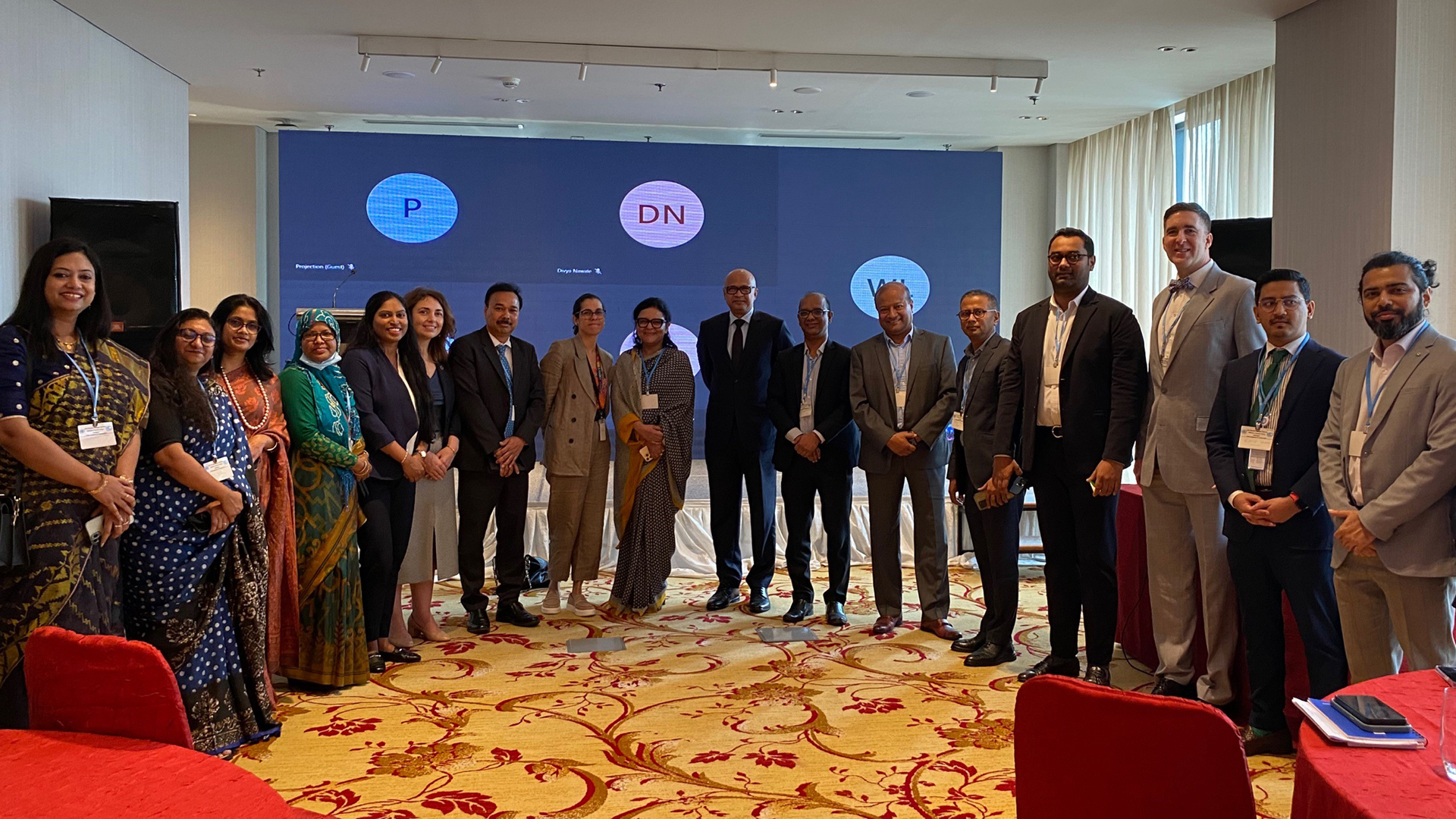H&M Group joins the policy roundtable by the UNFCCC Fashion Industry Charter for Climate Action in Bangladesh to discuss key reforms needed for the transformation of the renewable energy market and advance policy in Power Purchase Agreements and similar solutions like green tariffs.
News Article
H&M Group driving further climate action in Bangladesh

Today, the UNFCCC Fashion Industry Charter for Climate Action gathered fashion brands, policy makers, garment manufacturers, experts, renewable energy developers, and financial institutions to identify key actions needed to transition the industry towards renewable alternatives. How to unlock some of the challenges the Bangladeshi garment industry faces in this area, and what role each stakeholder plays to push the development forward were discussed. The main focus was the need to advance policies for Power Purchase Agreements and similar solutions, like green tariffs, to enable the industry to procure renewable energy.
“We are happy to take part in this important conversation about how to increase the access to renewable energy for the suppliers we work with and what kind of overall business and legal environment is needed to achieve this. Given the changing legislations in the world, we want to make sure that our suppliers in Bangladesh do not fall behind”, said Yosef El Natour, Head of Production H&M Group.
H&M Group supports the development of the necessary frameworks enabling our suppliers to move towards more renewable energy. Power Purchase Agreements can play a key role in the green transformation of the industry in Bangladesh, helping suppliers to remain resilient while ensuring that the local communities also benefit from this development.
Ziaur Rahman, H&M Group Country Manager for Bangladesh.
“We are grateful to the government of Bangladesh for their kind support to hold this dialogue, for their presence here today as we seek for solutions, looking at how can make the transition quicker, what are available tools and mechanisms in the context of Bangladesh as a leader in RMG sector and how can we design policies that drive innovation, that provide incentives to invest, and create a level playing field as needed”, says Lindita Xhaferi-Salihu Fashion Industry Charter Lead, UNFCCC.
At the closing of the event, it was clear that while many challenges lay ahead, the transformation of the energy market in Bangladesh requires all parties to work together proactively in developing new frameworks in order to proceed faster and meet our climate ambitions. All eyes will be put on the next UN Climate Change Conference (COP28) in which public and private sectors from all industries will have to respond on the progress of their climate ambitions towards 2030.
H&M Group’s priority is to reduce its absolute emissions by 56% by 2030 – in line with its approved science-based target. In addition, the company has a goal to source 100% renewable electricity to run its operations and supply chain by 2030. H&M Group is committed to be part of the solution when fighting climate change and collaborating with others. The company also works to drive the agenda forward for new frameworks enabling additional renewable electricity into the grids.
Contact:
H&M Group press service
Phone: +46 8 796 53 00
Email: groupmediarelations@hm.com
For more information about the H&M group and press images visit hmgroup.com/media.


